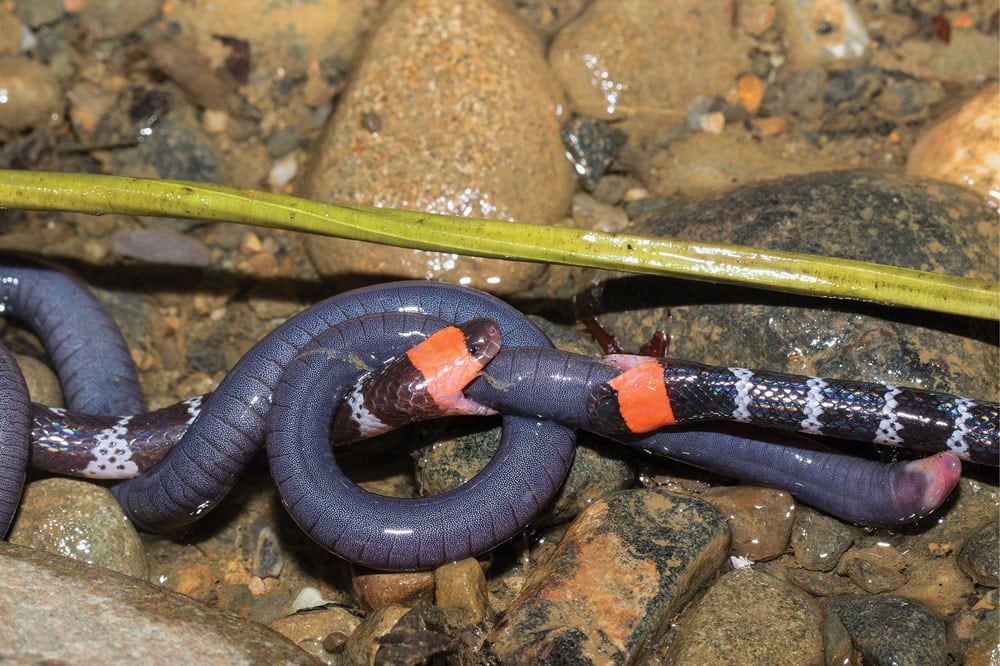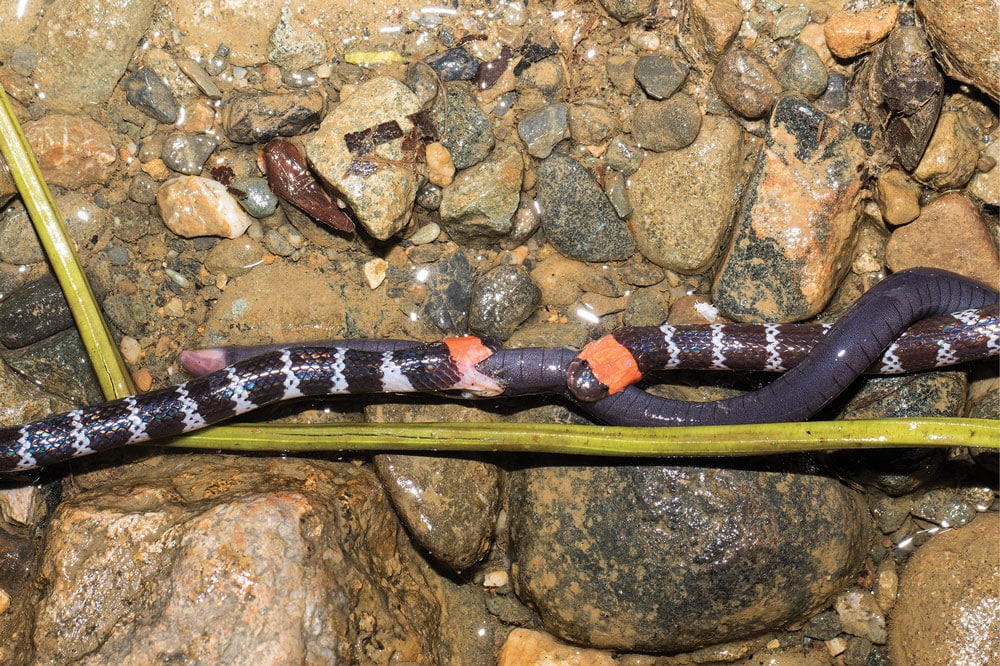The predation event took place on a dirt road in Western Colombia's Valle del Cauca Department, a rainforest habitat in which both species are known to inhabit.
Researchers have recorded on video what may be the first observed instance of two venomous red-tailed coral snakes (Micrurus mipartitus) in competition for the same caecilian prey. The predation event took place on a dirt road in Western Colombia’s Valle del Cauca Department, a rainforest habitat in which both species are known to inhabit.

Mucous, probably produced by the caecilian, appeared on the caecilian around the places of the snakes’ bite-holds. The winner to the left, the loser to the right. 10 March 2023 at 20:56 h. Photo by Henrik Bringsøe.
The independent researchers, Henrik Bringsøe, Niels Poul Dreyer, Alejandro Grajales and a local guide, happened upon the two coral snakes already fighting over the caecilian, with both venomous snakes employing bite holds on the amphibian. The two snakes continued with their bite holds and were observed pulling the caecilian in opposite directions.
When one snake released its hold and looked for a better location to attack the caecilian, the other would pull the prey away, especially when the competing snake got close to the head of the other snake. The researchers also noted the snakes made rotations along the longitudinal axis as they continued to grip the caecilian with their jaw, akin to an alligator rolling its prey.
At the 17 minute mark of the fight, one snake let go if its grip of the caecilian, and the other moved away with the caecilian. The losing snake did not pursue the prey or the snake. None of the animals were touched or handled during the combat or the feeding event.
The researchers believe the snakes rely on chemoreception to find caecilians. The predatory practice, known as kleptoparasitism could possibly occur more regularly, but it is not always observed in the wild, as this event shows.
Caecilians have evolved to develop resistance to alpha neurotoxic snake venoms, making them less susceptible to the venoms of elapid snakes, according to a 2023 study put out by the University of Queensland.
Caecilians Have Developed Resistance to Neurotoxic Elapid Snake Venoms
Information on the Red-tailed Coral Snake
The red-tailed coral snake, is a venomous elapid that is found throughout much of Colombia, and especially the western half of the country. It is bicolored with black body rings that alternate between white, cream or yellow rings, the researchers noted. The parental and caudal rings are red-orange. They are about 60 to 75 cm in length with some individuals reaching 120 cm in length. There are five subspecies, with four occurring in Colombia. These include Micrurus anomalus, M. decussatus and M. popayanensis. M. semipartitus occurs in Northern Venezuela. Micrurus mipartitus also occurs on the Pacific area of Colombia and eastern Panama.



